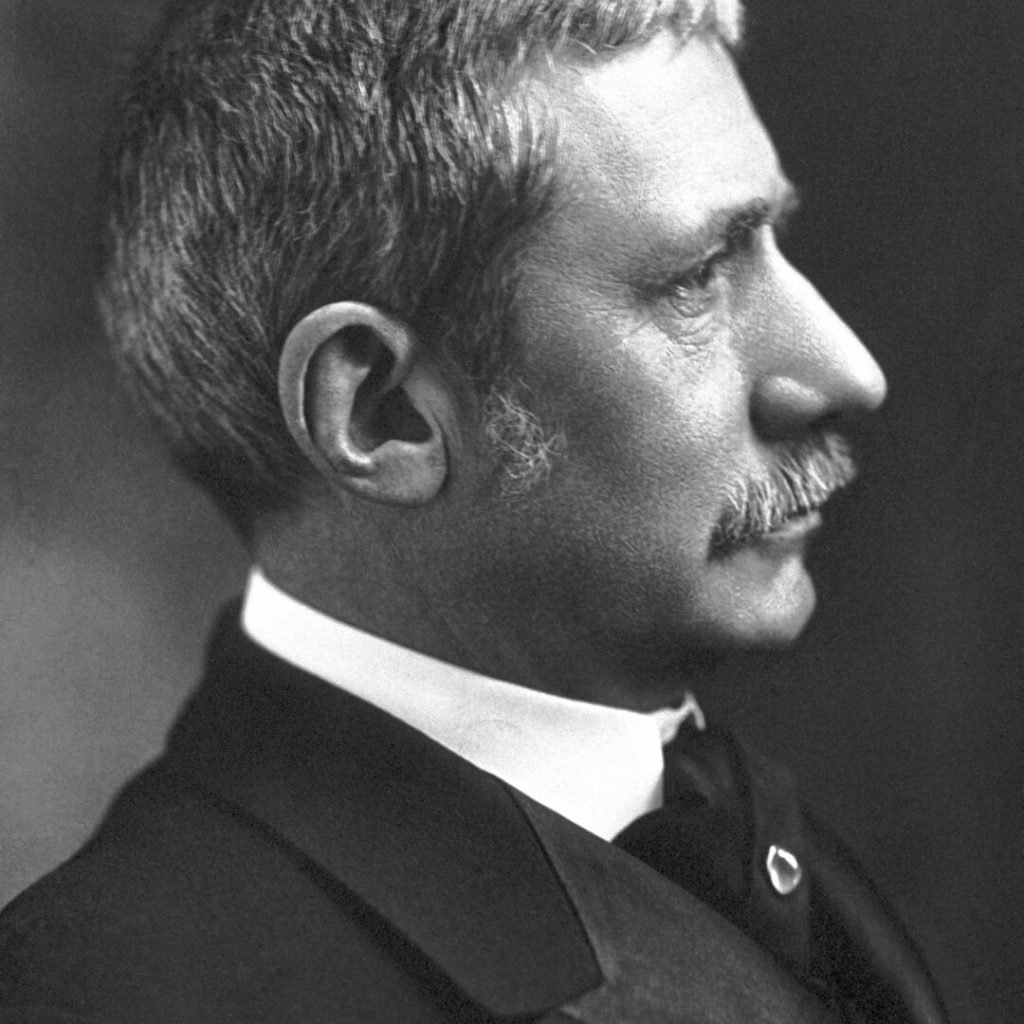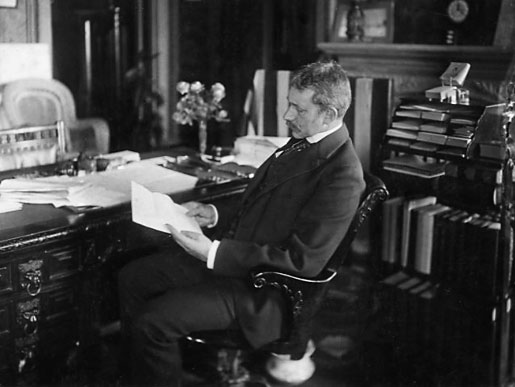Elihu Root
Speed read
Elihu Root was awarded the Nobel Peace Prize for bringing about better understanding between the countries of North and South America and initiating important arbitration agreements between the United States and other countries.

Full name: Elihu Root
Born: 15 February 1845, Clinton, NY, USA
Died: 7 February 1937, New York, NY, USA
Date awarded: 10 December 1913
Advocate of arbitration and an international court
Elihu Root served as secretary of war under US President McKinley, continuing under Theodore Roosevelt after McKinley was assassinated in 1901. Root participated in the campaign to bring the Philippines, Cuba and Panama under US control. Both Roosevelt and Root believed that the USA had the right to govern and educate “uncivilised peoples.” In 1905 Root was named secretary of state. Using arbitration agreements and peace conferences, he sought to ease Latin American fears of an imperialistic USA. Root also supported efforts to create a permanent, international court of arbitration in The Hague, and in 1910 he became the first president of the Carnegie Endowment for International Peace. Root had close ties to the international peace movement, and was nominated for the peace prize by several former laureates.
"Root is a man of engaging personality who has tried, with determination and independence, to put his ideals into practice."
Ragnvald Moe, Presentation speech, 10 December 1913.

Source: DC Public Library. Photographer unknown
Roosevelt for Root
Multi-millionaire Andrew Carnegie and President and Nobel Peace Prize laureate Theodore Roosevelt both wrote to the Nobel Committee, nominating Root for the peace prize. Highlighting his work for arbitration and a permanent international court, Roosevelt argued that no statesman in the Western Hemisphere had done more to promote peace than Root. Root had one black mark on his record, though. As minister of war, he was ultimately responsible for the brutal actions of American soldiers during the seisure of the Philippines. However, the report of the Nobel Committee adviser concluded that the atrocities occurred without Root’s knowledge or consent.
"No European statesman of whom I have heard has done as much for peace in any quarter of the world as Elihu Root has done in the Western Hemisphere during the last three years."
President Theodore Roosevelt, Letter to Andrew Carnegie, February 1909, Nobel Institute Archive.
Root and the League of Nations
After WWI, USA’s President Woodrow Wilson supported the creation of the League of Nations in an effort to prevent new wars. When US membership of the League was debated in the Senate in 1919, Root advocated membership, but he opposed the provision regarding joint action of League members against an aggressor (collective security). Wilson did not agree with Root’s objections. Ultimately, however the Senate voted against US membership. Nor did the USA choose to join the new Permanent Court of International Justice in The Hague, much to Root’s disappointment.
"There is so much of good in human nature that men grow to like each other upon greater acquaintance …"
Elihu Root, Addresses on International Subjects, Harvard University Press 1916.
Disclaimer: Every effort has been made by the publisher to credit organisations and individuals with regard to the supply of photographs. Please notify the publishers regarding corrections.
Learn more
Elihu Root (February 15, 1845-February 7, 1937), who became one of the most brilliant administrators in American history, was born in Clinton, New York, son of a professor of mathematics at Hamilton College ...
Nobel Prizes and laureates
Six prizes were awarded for achievements that have conferred the greatest benefit to humankind. The 14 laureates' work and discoveries range from quantum tunnelling to promoting democratic rights.
See them all presented here.
